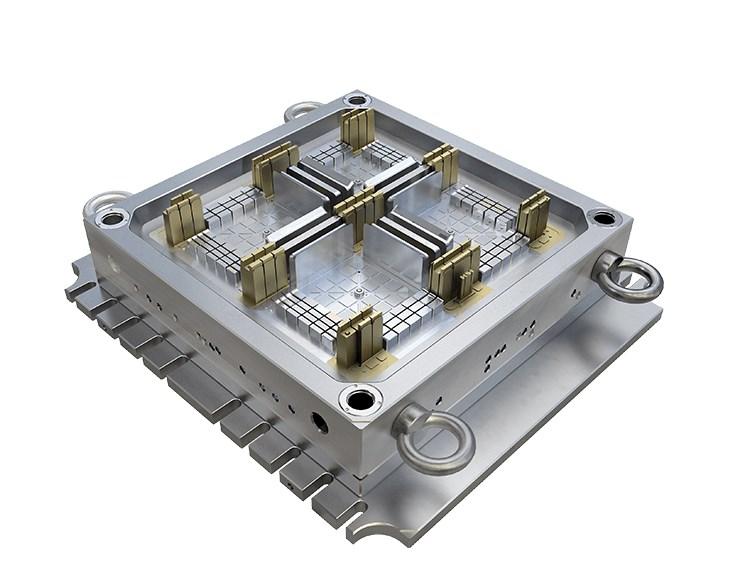Plastic industrial tray mould is an essential component in the manufacturing industry, facilitating the production of trays used for various purposes such as storage, transportation, and organization. The manufacturing process of these moulds involves a series of precise steps and specialized techniques to ensure the production of high-quality, durable moulds that meet industry standards. In this article, we explore the intricate manufacturing process of plastic industrial tray moulds, examining each stage from design to production.
The manufacturing process of plastic industrial tray moulds begins with the design phase, where engineers and designers conceptualize the shape, dimensions, and features of the mould. Using computer-aided design (CAD) software, they create detailed 3D models of the mould, taking into account factors such as tray size, material thickness, and parting line design.
Once the design is finalized, the next step is to select the appropriate material for the mould. Plastic industrial tray moulds are commonly made from materials such as aluminium, steel, or hardened tool steel, depending on factors such as production volume, budget, and desired lifespan of the mould.
The manufacturing process then moves to the machining and tooling stage, where the plastic industrial tray mould components are machined to precise specifications. Computer numerical control (CNC) machining is often used to mill, drill, and shape the mould components with high accuracy and repeatability.
After machining, the mould components undergo heat treatment to enhance their mechanical properties and durability. Heat treatment processes such as annealing, quenching, and tempering are used to improve the hardness, toughness, and wear resistance of the mould components, ensuring they can withstand the rigours of production.
Surface treatment techniques are employed to improve the surface finish and corrosion resistance of the mould components. Processes such as polishing, grinding, and electroplating are used to achieve the desired surface texture and appearance, enhancing the overall quality of the plastic industrial tray mould.
Once the individual components of the mould are fabricated and treated, they are assembled into a complete mould assembly. Skilled technicians carefully fit and align the components to ensure proper functionality and performance of the mould during production.
Before the mould is put into production, it undergoes rigorous testing and quality assurance procedures to verify its performance and reliability. Dimensional accuracy, surface finish, and functionality are evaluated through various tests and inspections to ensure that the mould meets the specified requirements.
After passing quality assurance tests, the mould is ready for trial production. A small batch of trays is produced using the plastic industrial tray mould to verify its performance, troubleshoot any issues, and make any necessary adjustments before full-scale production begins.
Once the mould has been successfully tested and validated, it is put into full-scale production. The mould is installed in an injection moulding machine, where a molten plastic resin is injected into the cavity of the mould under high pressure and temperature. The plastic resin is then allowed to cool and solidify, forming the desired tray shape.
After the trays are moulded, they undergo post-production finishing processes such as trimming, deburring, and surface treatment to remove any excess material and improve their appearance and functionality. Quality control inspections are conducted to ensure that the trays meet the specified standards before they are packaged and shipped to customers.
The manufacturing process of plastic industrial tray moulds is a complex and intricate endeavour that requires precision, expertise, and attention to detail. From design and material selection to production and finishing, each stage plays a crucial role in ensuring the quality, performance, and longevity of the mould. By following best practices and utilizing advanced technologies, manufacturers can produce high-quality moulds that meet the diverse needs of the manufacturing industry.



